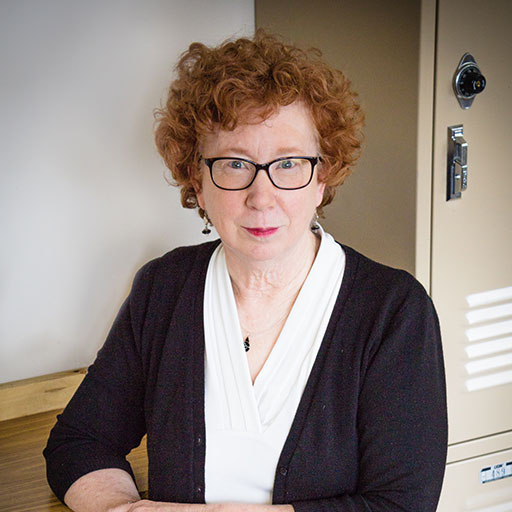Twenty years from now a researcher studying American history will examine decades of radical transformation in every aspect of society. He will ask: Who were those who lead change in our world? Where did they come from? What did they do? What happened 20 years ago that led to all of this?
Global change, radical shifts in social culture, transformation on a scale never seen before. Where does it begin? It begins in the heart of a child.
It begins with an engaged heart. One that flourishes in a system completely focused on drawing out of them that which God put in. It begins with re-visioning the role of education for the individual, a culture, a world.
For a long time we have understood education to mean an institutional system of delivering content in such a way that students learn what it is we value as a culture, and are able to apply that learning to the future of the society in which they live. The student’s primary function is to learn what others regard as important and to then contribute positively to their cultural system. The teacher’s role is to deliver content within an agreed upon developmental norm while the school provides the place, the environment, and the organizational framework to manage the educational system.
But what if Kingdom education is not about the system, but about the student? What if it’s not about what you know and can do, but about who you are? What if in God’s world the individual carries the seed of His likeness, and the goal of all activity is to develop that seed, that DNA, that uniqueness, into relationship with Him? What if education really is about engaging the heart, bringing out what God put there, and through environment and opportunity grow into full potential?
What radical shift would need to occur to put our focus on that which is eternal and away from that which is temporal? To move from an organized system of mass production, to craftsmanship of individual works of art? What if we understood education as a deeply human endeavor and not one of norms, averages, and standards? What if we engaged the nation’s children in the same approach to learning that God engages with us? What if our educational system was a mirror of God’s work in us and we brought heaven to earth? What would it take to make that shift in focus and in practice?
Relationship
This is not a treatise on the values of homeschooling, private schools, or public experiences. Nor is it an assignation of worth to one set of existing curriculum, instructional strategy, or school design over another. This is an exploration of how we might shift our personal, local, and national practice to that of Kingdom principles.
If we believe Jesus’ prayer asking God for His Kingdom “on earth as it is in heaven,” and believe that His sacrifice brought restoration of broken relationship, then we know that the prime directive of Kingdom principle is relationship. Every content discipline is the study of relationship. Science and mathematics considers the relationships and expressions of the physical world; social science is the relationship of people through time and environment; the arts are the communication of our self to others. God did everything and continues to do everything out of and for relationship.
To the degree our heart is engaged with His we learn. We learn of ourselves, we learn of Him, we learn of how we live and move and have our being. The more we learn the more we grow and expand in our understanding of our universe, its people, and our relationship with the Father. Without this relationship we are automatons responding to stimuli in a limited environment focused on preserving culture and society.
The basis of relationship is so fundamental to Kingdom that any system whose foundation is about relationship will grow and flourish. It is as basic as the principle of reaping and sowing, it is the core operational principle of creation in that everything exists in relationship.
The System
Yet, the world we present to our students today is one based on systems of the past created for a society of the past. We teach a standards based curriculum to a classroom of 30 students, through research based instructional strategies, measured by valid and reliable instruments to a predicted outcome of high school graduation within an expected timeline of 18 years. What of this, speaks of relationship? What of how we do school focuses on drawing out the gifts and talents of the learner and is personalized to who they are as a person? We live in a system focused on what you do, but God dwells in a relationship based on who we are.
Yes, we have incredibly dedicated teachers who do everything in their personal power to foster relationships with students. Yes, we have school administrators who work mightily to develop services and programs to meet the needs of individuals. Yes, we have state legislators who make laws for what they believe will meet the needs of the many. All are well-intentioned, all are focused on what society understands are for the good of the student, and all are based on a system designed to produce reliable and predictable outcomes. As long as we continue to refine and adjust this general process we will create the flotsam and jetsam of students who conform and those who don’t. Our haves and have nots will continue. Our stubborn dropout rate, our persistent stratification of wealth equals opportunity, our entire culture will remain the same. In order for radical transformation to occur we need to strategically align our philosophy and our practices to that of the Kingdom.
Change is a constant. We are either actively creating the future or we are passively maintaining monuments to the past. Education based on engaging the heart of each individual would look very different than the systems of today. It isn’t that curriculum, instruction, and assessment wouldn’t exist. But they would exist in the context of the individual needs of the student. It isn’t that we wouldn’t have buildings, teachers, curriculum or expectations, but it is that our starting place is the needs of the individual, not the demands of the group.
Our current system works on a perceived norm of the group: grade level groupings, age appropriate content delivered in a common group setting with normed outcomes. We operate on a notion of “x” amount of time with “y” content delivered by a “z” qualified teacher works for most students. For those it doesn’t we use the same system tools to try and meet their needs.
However, every teacher knows, and every family knows that each of their children are different. Yet we have an entire system based on a value of “x” that we know is not accurate. Our current practices of education derived from an expectation of society, not from the needs or potential of the individual. It came from a philosophy of putting knowledge into minds, not from a drawing out of what’s in hearts.
In a governmental system that guarantees societal rights of the individual our national educational system is one that guarantees the rights of society over the needs of the individual. Laws and systems expect that in 190 days of attendance all students will learn certain things. What of those who already know those “certain things?” What of those who can’t learn those “certain things” in the given 190 days? What’s the important process and outcome for education: meeting standardized expectations or developing the potential of the child?
Actions are an expression of intent. How do we go about creating a system that honors and develops the worth and gifts of every student? How do we engage the heart of the student in the act of learning? Seeing the work of education through this perspective shifts the responsibility from far to near, from standardized to individualized, from predictable to innovative. To the degree these shifts are made radical transformation will occur. Any step in this direction will be met with resistance and results. God can change an entire system. He can refocus our priorities on Kingdom principles. He does want to transform how we do education and He has already shown us the way.
Radical Transformation
“Okay, God, here I am. I want to know how to have heaven on earth in a public school. I want to know how to do Kingdom in a world system. You made me principal of this school, and now I’d like to know what you want to do with it.”
That was my basic prayer when I started as the new principal at a comprehensive public high school. I had just come from a large, suburban, high poverty, high diversity school where I had some early glimmers of how God wanted to use me in the capacity of administrator. Now that I had a new school in a different city and district, one that was radically different with 80 percent wealth and high expectation alongside a minority of generational poverty — the question was obvious: What did God want to do?
Shift 1: Vision Catching
He gave me a vision, a focus of empowering students to change the world. An idea that we could figure out how to help students create the future for good, and step out of predictability and routine. The vision He gave was one of potential, of two decades in the future a phenomenon of cultural change caused people to wonder what had happened 20 years earlier to create such transformation. My job was to be that change at my school. The first shift in radical transformation is to get the vision; find out what God wants to do and then learn how to do it.
We see this principle of vision and doing, calling and acting, throughout the Bible: Moses, Joseph, Joshua, David, Solomon, all the prophecies leading to Jesus, and then Jesus laid it out plainly: “I only do what I see the Father doing; I only say what He says.” An engaged heart with the Father. Relationship.
It would be pretty tough to go to my new staff and say, “Thus sayeth the Lord, we are going to create change.” But it wasn’t that much of a challenge to ask God to do what He said He wanted to do, and then to speak truth to my staff in ways they could access and understand. Staff knew the vision; they knew we existed to empower students to change the world. They knew we were the unit of change ourselves. Far to near. We embarked in using technology as a tool of change and stepped closer from standardized to individualized. A culture was created of exploration, autonomy, and freedom leading from predictable practices to innovative solutions.
Shift 2: Territory Taking
Then came the enemy. The second shift in radical transformation is to take the territory assigned to you. A time of attack on health, relationships, reputation, debilitating weakness keeping me from being productive let alone present. Every area of my life was challenged. Unreasonable fear gripped me daily, and insecurity was my constant companion.
Then one day God said, “Everything you have physical responsibility for you have spiritual responsibility for as well.” I had physical responsibility for this school, therefore I had spiritual responsibility. When I took spiritual authority all the conflict stopped. All. Every area that was challenged was restored. Taking territory that God had assigned to me created peace, healing, freed up resources and produced that unmistakable favor that says, “Father God is here.” What was left were the foibles of humanity, the impact of life in a fallen world.
Shift 3: Occupancy Learning
The third shift in radical transformation is to learn to occupy. The following years were ones of rapidly learning to adapt, changing focus, developing relationships. Letting God lead and direct. A year of “explosion” with unprecedented achievement in academics, arts, athletics. A time of great favor in resources, insights and personal movement. Of shifting from hierarchy to relationship and community.
None of this is without challenge, all of it is based on God revealing His model, His basic design for how people and systems work in relationship. Of learning how to flow in a deeply human profession. We are not there yet, we are not perfect, we haven’t hit the end of learning what Kingdom looks like, and God doesn’t expect us to be. Relationship is process not product. It is continual improvement and learning, not arrival.
Shift 4: Expansion Implementation
The next shift is one of expansion. Now He is creating a way to design a public high school from the ground up within our district. A new school to meet the needs of all students in a radically different way. A school that doesn’t start with the system of discrete subjects, bells, kids in desks, or preset curriculum. Our school will start with the student and not the system, with deep learning as a person, with drawing out what God put in, and a system that adjusts to the needs, passions, and interests of the student. There will be content, there will be instruction, there will be expectations, there will be learning. But the start, the focus, is engagement of the student’s heart. Once they know they belong, believe they are valued, and treasured for who they are, knowledge and skills will come rapidly and doors of creating the future will be opened.
Initiating a Movement
Father is changing the world, transforming our systems into His likeness. How do we do this with Him?
First, enter into a relationship with the Father that transforms you and engages your heart to His. It is at the individual level of a changed heart that God starts to transform culture. Look at whatever area of influence and responsibility He has given you and ask, “What do you want to do here, what does heaven on earth mean here?” Catch His vision for where you are. Parent, teacher, administrator, district official, legislator, policy maker — you are in your position because God arranged time and space to put you there. He is intentional and He is thorough. He has not left one aspect of system change up for whimsy or chance. He has a plan and He invites you to be part of it.
Know that just as Esther learned she was positioned for such a time as this, she could also refuse to participate and God’s change would come another way. When you choose to be part of what God is doing you radically impact His world.
Next, take territory. Use your authority and power as one of God’s children to exert spiritual authority over your areas of responsibility. Clearing out the spiritual muck that exists is all-out warfare — and although you have already won you do have to go through the battle. This step will open doors of opportunity previously closed or hidden. Ask God what’s missing and then when He tells you, ask Him to fill in that missing piece. Fruits of the spirit can then flourish and grow.
Finally, learn the lessons of occupation: relationship with Father creates impact on practice resulting in changed systems. The benefits of Sonship will be revealed and you will learn to walk in all the rights and privileges of another Kingdom. None of this will look like what you think it will. It is of another Kingdom, and it operates entirely differently than you can predict or produce. And, it is insanely fun. Discovery, innovation, and revelation are all hallmarks of Kingdom occupation. Your influence will grow and expansion will develop.
When does a step become a movement? When enough steps happen. When enough people ask of the Father, “What do you want to do here?” And when enough individuals allow Him to take them on a journey. Then a movement will occur.
A shift of paradigm, a shift of practice, a shift of culture will come. There will come a time when school as currently experienced will be a small shadow in the world of learning. Education will focus on the hearts of the children, engaging them in relationship, knowledge, understanding, and wisdom. The expectation will move from what they know and can do, to who they are and what they do with that knowledge. God will transform our culture of education through hearts that are engaged in relationship, through hearts that are changed.



